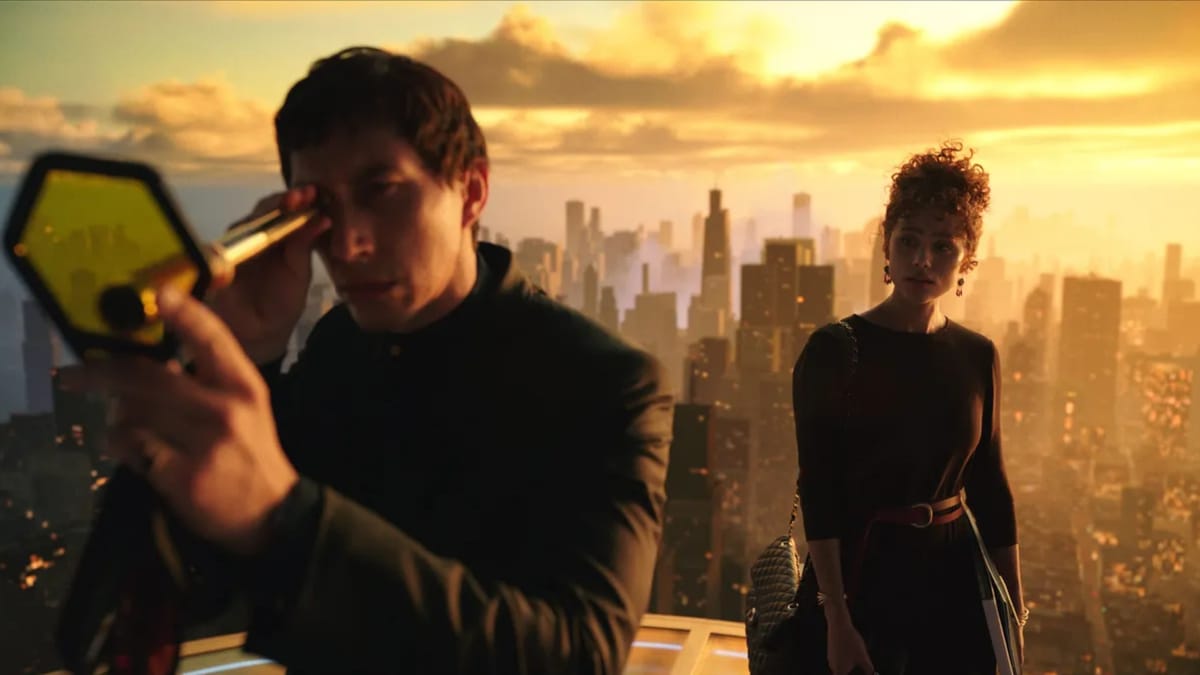The Local Government policy of Megalopolis

The first thing to say about Megalopolis is that it is a mess of a film.
It feels like it's badly edited down from a seven hour original cut, and indeed it would work much better as a TV series where some of the world-building and plot lines could be built out rather than abandoned halfway through. But we're not here for film criticism we're here to talk about the local government policy.
Megalopolis is roughly based on a hybrid of modern New York and ancient Rome, although the Catiline in this film is not the Catiline of Roman history, despite the extensive quoting of Cicero.
Even so, it is much more modern than ancient, with a populist rabble-rouser, Clodio, who is very clearly meant to be Trump (and who ends up – spoilers – hanging upside down à la Mussolini).
The striking thing about it from a city governance perspective is how unimaginative most of it is.
In particular, the utopia that the Robert Moses-ish Cesar Catalina is trying to create looks like Midjourney has had a go on an Elon Musk tweet.
In this bright new future, the transport mechanisms are either conveyor belts for individuals or things that look like bubble rolling along a road – magically flying off to different destinations.
There is nothing appealing or collective about that cold and isolated vision of the world. It reminded me of Robert Moses's view that public transport should be kept away from his state parks on Long Island in case it brought the wrong sort/colour of people.
The film also takes a very mayoral and personalised view of leadership, more Roman Empire than Roman Republic.
The mayor, as well as his rival, is seen only as a single monarchal leader. In reality, even imperial Rome in the early years had significant other power centres, and while Augustus may have been "first among equals" he was definitely - even if only for politeness's sake - among equals.
Also part of the Great Man theory of Megalopolis is Cesar Catalina, almost a John Galt figure in his icy certainty about his vision, and similarly treated by the film as unquestionably true.
So don't go to see Megalopolis for a vision of the future, either of Rome, Moses' New York or the future of America. Although the present moment is one of infinitely arrogant rich men shouting about their unquestioned brilliance, that is driven by a grassroots, decentralised movement of individuals in a way that makes the faceless crowds of the film feel very old-fashioned.
The film misses out on the most important parts of what future governance looks like - decentralisation, for good or ill. The TV-political binome in the film is gone. The single male leader is still with us, for now, but has to rely on more than traditional institutional structures. The idea that making the better argument on TV is now all there is to winning the votes.
There are optimistic and pessimistic visions of the future, and we need to do our best to head down the positive path, but Megalopolis gives you a future that is very much of the past.
Service update
I've moved over from Substack to Ghost at the new address anthonyzach.be, and added the archives of my very old blog. I'll try to get back to a weekly rhythm for 2025, at the very least for the bits-and-pieces section.
🚉 Tram lines - reading for your commute
- Ben Ansell's post reviewing the mega-election year of 2024. Did it spell disaster for democracy? Well, it started strong but went downhill.
- Silja Häusermann in Samenleving en Politiek [NL] that "Social democratic parties did not lose voters because they moved too much, but precisely because they did not adapt enough to the new sociological reality of today's knowledge society."
- Henry Farrell on the risk of social media not being disinformation as much as creating malformed publics.
🌞 L'Heure Joyeuse - for when you get some time off
- In the cinema, Vingt Dieux (Holy Cow in English) was my favourite film of the week, telling the story of an 18-year-old living in the Jura whose father dies unexpectedly, leaving him to raise his young sister and find his way in the world. Comté cheese features heavily.
- Antwerp's KMSKA is shortly closing its Ensor exhibition, "Ensors stoutste dromen". I am not, I confess, a huge fan of Ensor, but I found this exhibition fascinating, taking his art from the start of his career to the end, but drawing all sorts of interesting connections within his work and with the work of other artists that I hadn't thought of before. Until 19 January.